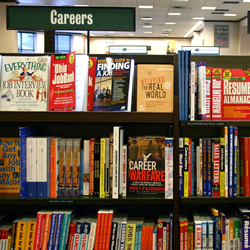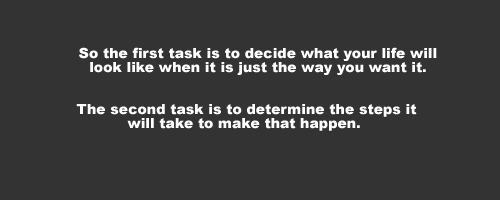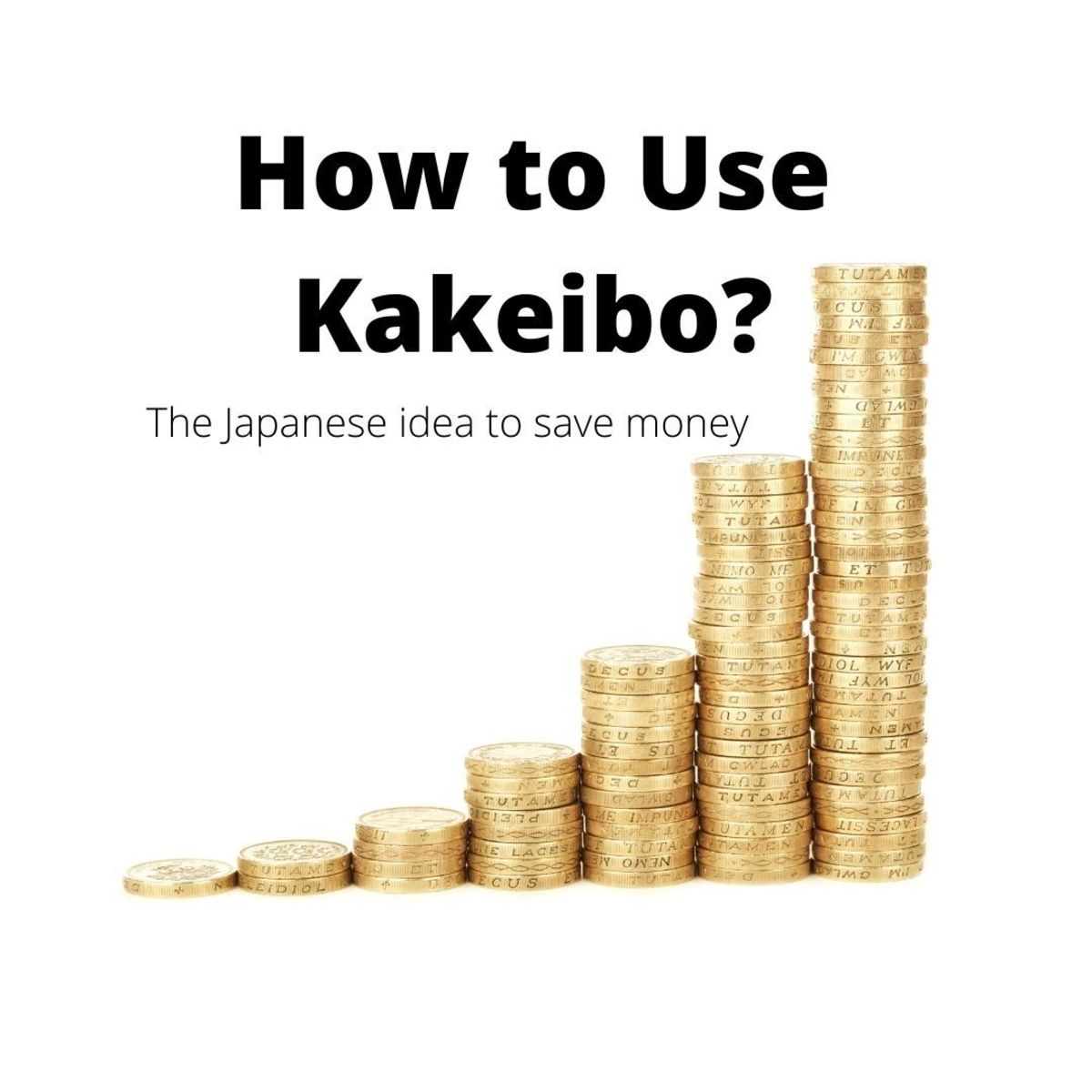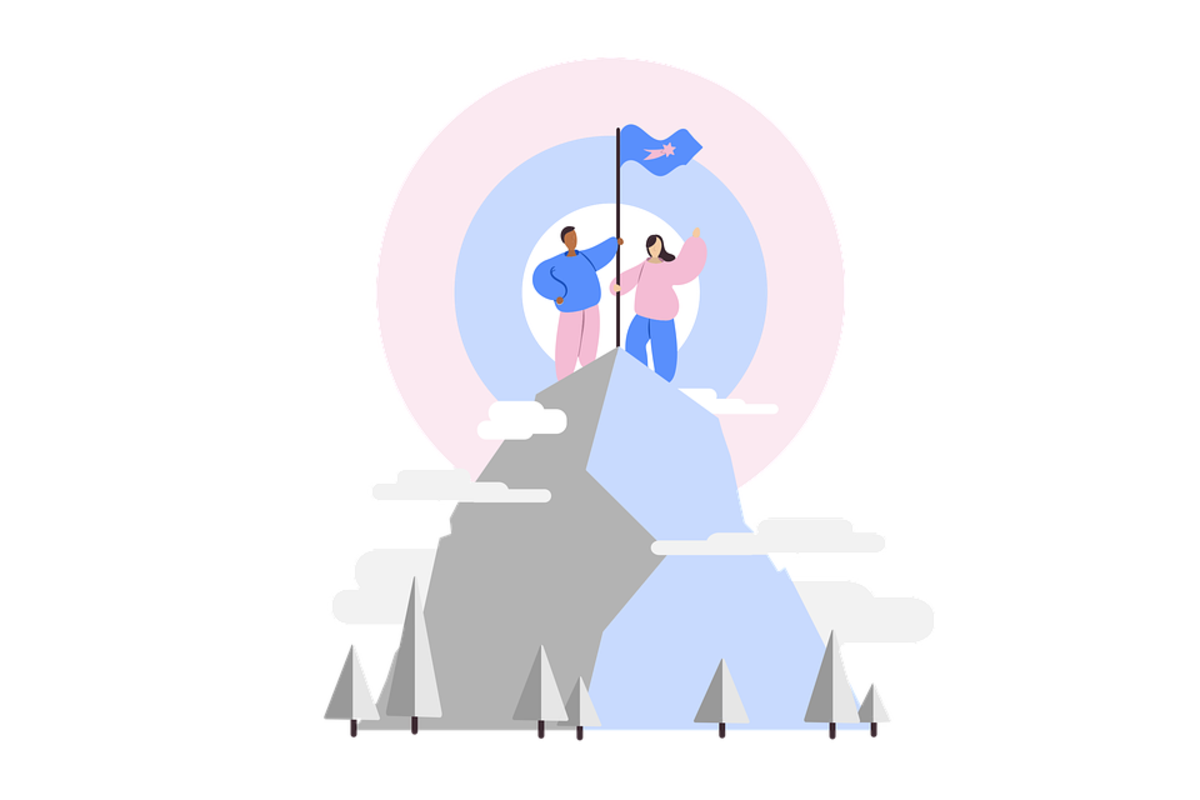How to Choose a Career that is Right for Me

Introduction
There is no shortage of advice on how to choose a career. That is no surprise. It is, after all, a very important decision.
Most of us will, at some point in our lives, have to earn money to pay for the necessities of life by working for someone else. We will have to get a job. This article is about making that job as fulfilling and satisfactory as possible.

Importance of Getting it Right
What is the best career choice for you? What gives you the most satisfaction for your effort? There is evidence that more than half of us get this at least somewhat wrong. Only a few, maybe about 10%, are fully satisfied with what they do and would not want to be doing anything else. At the other end of the scale, maybe about another 10%, every day at work is pure misery and torture. In between is where most of us end up, more or less satisfied, but not completely.
Choosing a career might seem like a daunting task when you're still in high school. We are talking about the rest of your life here. Despite the dismal statistics mentioned above, how many people do you know who got it right the first time? Not many, I bet. The vast majority ended up doing something different from what they set out to do.
How important is it to get it right? Probably less than you think. The key to unlocking the difference between joy and misery is to realize that change is possible. We are not stuck with a bad choice. Far too many, however, remain in unsatisfactory work situations for years falling prey to our natural resistance to change and our ability to adapt to just about any situation. We will need to come to grips with the
idea of changing our work environment to match our preferences and not change ourselves to match our work.
In the end, it is all up to you. Remember, you are not stuck with anything. You can change direction at any time. If your working life needs adjustment, it does not mean you failed. You did not. Lots of people change direction at all stages of life. Have the courage to pursue happiness.
Dealing with the Pressure to Choose Something
Societal pressure to choose a career can start really early. How often have you heard someone say, "Oh, he'll be a farmer just like his dad" or "She'll be a hairdresser just like her mom?" It's cute when it's a four-year old. When you're in high school, the pressure might begin to feel uncomfortable. In today's society, many 25-year olds are still struggling with that same question. At this point, it is no longer funny. The loser label is looming large on the horizon. The urgency increases and so does the chances of making a mistake.
It is far more important to get this right than most people realize because our built-in resistance to change and ability to adapt to just about any situation will keep us in misery till we die. Action is required.
Career or Job – What is the Difference?
First, what is a job? The dictionary tells us that there are two kinds of jobs.
A paid position of regular employment.
A task or piece of work for which there is some kind of compensation.
Let us contrast that with a career.
An occupation for a significant period of a person's life and with opportunities for progress.
The main difference is that a job is static. It begins and it ends or stays the same forever. There is no progress. A career, on the other hand, progresses over time. In other words, a job may be a particular occupation you have for a period of time while you prepare for the next level on your career path. A career does not necessarily need to have an end goal or it could change along the way as you mature, but does typically have intermediate goals along the way.
Setting goals is an important part of planning your financial life and therefore also your career. This next section is about setting goals.
Career Goals
This article is part of a series on financial independence. My definition of financial independence is the absence of restrictions in your financial life. Financial independence means that you have to do nothing except what is for your own personal fulfillment and not directed towards getting your basic need for
food, shelter and clothing met. That would be my personal career goal. Obviously, yours could be different.
For some people, being a doctor or lawyer or a dentist or the CEO of a multi-national company could be career goals. Why couldn't it be fly fishing or mountain climbing? I personally know of a man who made it a career to sail around the Caribbean in a sailboat. Another, who thought he had achieved financial independence but failed to define what that meant to him complained to me one day, "Why must I play golf all day long?"
Yes, even financial independence requires careful planning. Setting goals is about envisioning what the next part of your life looks like. Some of the goals you set will be for the short term. Others will be for the longer term.
Commitment
Setting goals are good for moving you forward. Without goals you would not know in which direction you are going. However, setting goals is not enough. You also need to commit to achieving them. Without commitment, you may never get there even if you know where you are going. That may feel restrictive to some people and that is exactly the point. If it feels restrictive, it is probably because you have a tendency to become distracted and veer off course. Goals keep you focused.
The restrictive nature of goals also has the potential for limiting your possibilities. It is easy to get focused on earning a lot of money when your real passion is backpacking. Goals should not limit the possibilities, only limit the steps you need to take to honor those possibilities.
Without goals, your career is more likely to be shaped by opportunities that come your way, people you meet rather than your deliberate and focused effort to get to a certain point at a certain time. That is the reality most of us live in. Without goals, you will be tossed to and thro as one job follows another.

What is a Career Path Anyway?
A lot of the career advice you can find talk about a career path. It conjures up in my mind a picture of the little cars in amusement parks. The steering wheel turns, but the car still follows the track laid out by the engineer who constructed the ride. Is that what you are aiming for?
Your career path is much more likely to look like you with machete in hand in front of a massive jungle of brush. There is no path. You have to forge it, make it up as you go along. There is no magic way to know where you're going or how to get there.
As you create your path, you will run into obstacles. You will find treasures you can take with you. You will meet others who will either cross your path or walk alongside you or you will follow them for a while. It's the journey, not the destination that matters.
While setting goals is important, it is equally important to move those goal posts when necessary.
Historic Perspective
We could go back to pre-historic times when career choices were limited to survival tasks. There were only two jobs available: Get food and prepare food.
It's a little more useful to look at pre-industrialization times. Before industrialization, people were craftsmen and artisans such as shoemakers, blacksmiths, weavers, carpenters and so on. Sons would learn the craft from their fathers. Daughters would learn housekeeping, cooking, knitting, sewing and child care from their mothers.
Career choice options were much more limited than they are now. As a young person today, chances are that your life has already taken a path that is dramatically different from your parents or grandparents. You probably spent a great deal of your day in school or a day care facility rather than following your father or mother around.
Your role models are likely to have been either other kids or strangers, the majority of whom were female.
Your toys may have had some remote resemblance to actual tools. Your parents' or grandparents' toys were probably much more like the real ones. They probably were actual tools.
No wonder people generally don't get it right the first time. They have not been exposed to work while growing up. Their expectations do not match their reality.
How Do You Know When You Have Chosen the Right Career?
What does a successful career choice look like to you?
Mondays have a really bad reputation when it comes to people's level of satisfaction. Monday is the day of the week when a lot of us return to work after doing something else, something we enjoyed or at least something we, not the boss, decided to do for a day or two.
So why have Mondays gotten this bad reputation of being unpleasant?

Choose a Career That Will Make You Happy
What Makes People Happy Anyway?
If you were to go and ask a bunch of happy people why they are so happy, you would get answers like:
They get to spend time with family and friends
They have enough, not too much, not too little
They have little desire to try to keep up with the Joneses
They are not very concerned about their social status
They have a comfortable balance between flexibility and structure in their lives
They engage in absorbing activities that cause them to lose track of time
They engage in activities in which they excel. People feel best when they do what they do best
They are more concerned with having fun than accumulating stuff
These findings are supported by research in the book, Your Money or Your Life by Vicki Robin.

The Role of Money
In Your Money or Your life, Vicki Robin has this "fulfillment curve." At the most basic level we need to get food, shelter and clothing. The more of that we get, the happier we will be - up to a point. Once we get to a certain level of material possessions, additional accumulation does not increase our happiness. On the contrary, our level of satisfaction begins to decrease.
The graph looks something like this:
It shows that more money does make us happier, but only up to a certain point. Once we have achieved that level, more money will actually make us less happy or fulfilled. That optimal point or balance is called enough. Enough means something different for each of us, but figuring out exactly what that means could be essential for our overall wellbeing. Our career choice might depend on it.

Role of Chance
People are different. They have different backgrounds, priorities, abilities, interests. You, like everyone else, are unique. Therefore, your career path is likely to be different from everyone else's.
Sometimes, the path we end up choosing is not what we had imagined. Sometimes it gets chosen for us by opportunities we come across, people we meet, people who influence us.
How much of it really is up to you? How much control do you actually have? Is chance really chance?
It certainly is possible to lead a fulfilled life simply by following the opportunities that happen to come your way. The rest of us like to go about it a little more deliberately and increase our chances of a happier work life.
We have finally come to the meat and potatoes of this article: How do you actually go about choosing a career.
Interests and Skills
Some say that you should do what you are interested in. What if you have little or no talent in that particular field? Should you still choose it? Most of us like to succeed at what we do. Could you learn to do what is required of you well enough to get by? Would it still be sufficiently fulfilling for you if you are only mediocre at what you do? What if your interest changes? These are important questions only you can answer. For a lot of us, it is easy. For others, it is not so easy.
If your approach is to focus on skills and talents rather than interests, it is important to remember that there are two sets of skills:
- The skills and talents given to us at birth and
- The skills and talents we have acquired or learned during our lifetime.
The first kind, our innate talents, will never change. They are part of who we are. Acquired skills can change as we practice them - or not. For some people it is pretty clear what their natural talents are. For the rest of us, it may not be so clear, but discover what they are, perfect them and your chances of career success increases dramatically.
Role of Skills
If you are lucky enough to know exactly what you are good at, the case is clear. If you are more of a Jack-of-all-trades type person, fear not, there are ways to narrow it down for you.
There are plenty of skills assessment tools on the Internet. Some are free. Some cost money. Do not skimp on this, though. The cost, human as well as financial, of making a mistake far outweighs the cost of a good quality test.
Role of Interests
Man is, by nature, curious. That is why we have religion; man asking where did we come from? Where are we going? How do we get there? What are stars made of? The great innovations of our time have been brought about by men and women with a combination of extraordinary curiosity, interest and talent and passion.
When all these elements line up, magic can happen.
Role of Values
OK, so you have found an interesting job where you can utilize your natural talents. It pays well enough to satisfy your most basic needs, but we are not done yet, are we? There is more. Most people would also like respect, recognition and appreciation or perhaps a sense of being in control.
In addition, some people also value doing things that is aligned with their own personal values or sense of ethics. For some this is extremely important. Others could not care less. The former might become activists and the latter corporate raiders.
Role of Personality and Interpersonal Relations
More than half the people who complain about their work situation say that their biggest problem is other people. This is where it pays to know what kind of person you are. An extremely shy person would not get a sales job, would you? You might be happier sitting in a backroom entering invoices into the computer or paying bills. Similarly, an extremely extroverted person without daily interaction with others, would become emotionally starved very quickly.
If your type is not already clear to you, and most are a combination of several different personality types, there are excellent test you can take to get a clearer picture of who you are. Chief among them is the Myers-Briggs Type Indicator. I will tell you again, the cost is minimal and probably will give you the clarity you need.








